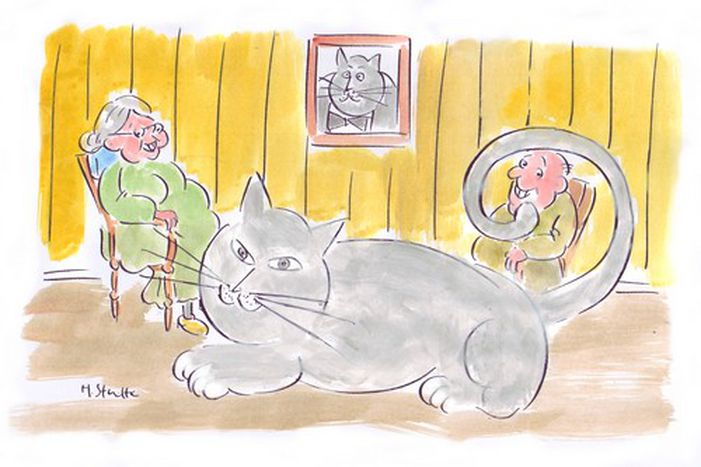
Cat-isms
Published on
Translation by:
 ellie finch
ellie finch
The cat is a favourite animal amongst Europeans. When the French have a cold, they are said to have un chat dans la gorge ('a cat in the throat'), whereas their English neighbours would prefer to have a frog tickle their glottis (frog in the throat). In Germany, 'having a cat' is reserved for the embittered days that follow a night of heavy drinking, a particularly difficult situation becoming a Katzenjammer, or 'cat-misery'. Whenever their efforts are unfruitful, Germans complain that das war alles für die Katz ('it was all for the cat').
Provided that it's black, the domestic feline can be a sinister animal that brings bad luck in France as well as Spain, and can be associated with suffering: the chat à neuf queues - a torture instrument used principally by sailors, made up of nine straps each trimmed with sharp iron points – bears the same name in every country: a gato de nueve colas in Spain or a neunschwänzige Katze in Germany. The English have even institutionalised the phrase: a cat o' nine tails refers to a kind of formal punishment employed by the British army.
The French are ultimately the craziest about their toms. Don't be surprised if you ask a French person a question and they tell you 'they've given their tongue to the cat' – someone qui donne sa langue au chat simply doesn't have a response. Don't persist if they have d'autres chats à fouetter, as this means they've got better fish to fry than answering your question. And if a French person claims that he intends to appeler un chat un chat, they won't beat around the bush and will call a spade a spade by giving you a shockingly outspoken response.
Translated from Chat (ouille)


